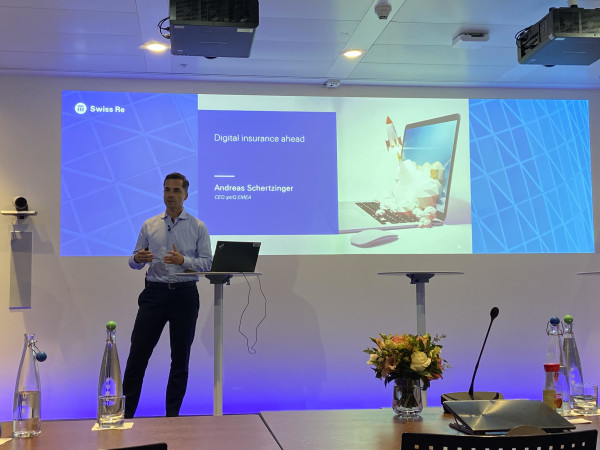

Speaking at a Swiss Re seminar on how the insurance industry is using data and technology to quantify various risks, Andreas Schertzinger, chief executive for iptiQ EMEA, warned that the 'Kodak moment' for insurers in terms of using data to its fullest extent had not happened yet.
The head of the digital life, health and non-life insurance business said there were several factors that could be holding insurers back from providing customers to access the digital opportunity, and one of these was traditional business models; distribution in particular.
He said: "Much of the money that [comes into the insurers] comes from distribution channels and the fear is that this [drive to greater automation] will upset or cannibalise this existing business.
"It presents a big conflict to ... bringing insurance to consumers directly."
While some insurers are using their data to help automate parts of their underwriting and claims processes, he explained the "traditional model" means insurers, insuretechs and big tech are "struggling to unlock market potential".
He also highlighted the "need for talent" and the need to constantly update the data ecosystem as it evolves rapidly as other potential challenges for the insurance world to overcome.
But he added: "More customers need to experience insurance better and differently. More insurers need to be out there, delivering tailored and customer-centric propositions."
This would lead ultimately to the following customer benefits:
- A seamless experience
- Convenient services
- Customer value.
His comments echoed those made by Carl Christensen, head of Swiss Re's life and health platforms and data solutions.
Earlier, Christensen said that tech could help deliver better solutions in the life and health market.
Highlighting Swiss Re's own platform solutions, he said it was clear insurers needed a "modular offering with capabilities to address the full spectrum of client needs", whether this is basic life or a more customised health product.
"Tech can help deliver these solutions", he added, explaining how in the US, alternative data integration, such as electronic health records, has been helping to get more rapid decisions for the customer.
Moreover, with the rise of a tech "ecosystem", where there are interconnected devices such as wearables and mobile devices, Christensen added: "These could help to create access points for the customer if they wished to do so."
Still a place for the broker
However, Kathryn Knowles, co-founder of Cura Financial Services, said the greater threat of automation is not towards brokers but clients with specialist needs.
She said: "The biggest threat is to the client. More automation means that people that need fair access to insurance, will have less chance to have a human review their application.
"For some applications greater automation will work well, but I’m very concerned about this making it harder for people to get insurance or having more of a 'computer says no' experience, especially with mental health histories."
However, Schertzinger told FTAdviser that digital was not a replacement for the broker, especially for certain situations.
He said: "Digital does not mean impersonal insurance. There should be both digital and personal touchpoints."
He gave the example of a policyholder wanting to change their address - this should be automated and not need to go through a broker to achieve.
"But certainly if there were, for example, a life claim event, then I would want to talk to a broker.
"For agents in retail, they are also adding more and more digital strategies to their own business model, so this is not about replacing but augmenting and updating things for the consumer."
Pravina Ladva, group chief digital and technology officer for Swiss Re, said: "There are always those 'moments that matter' where people would prefer to speak with a human.
"This will always remain and we will see that continue, even with greater digitisation."
simoney.kyriakou@ft.com



